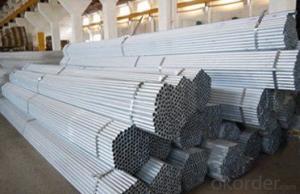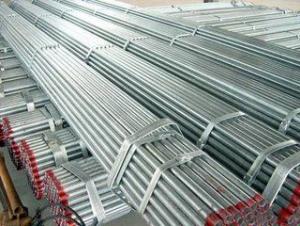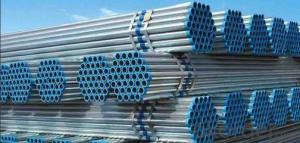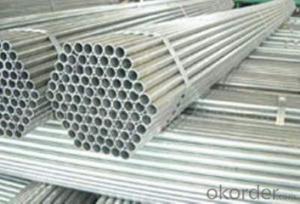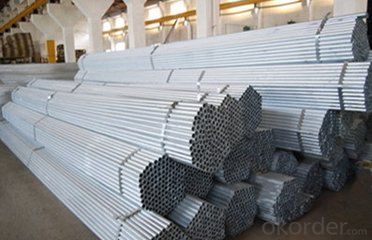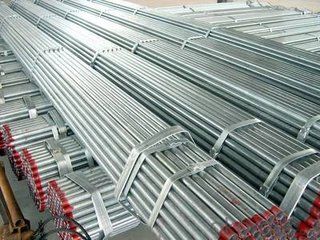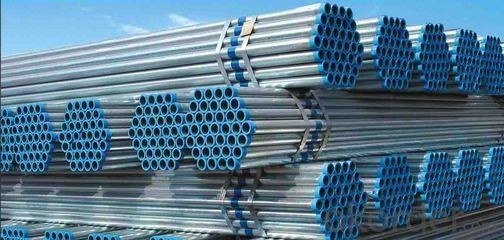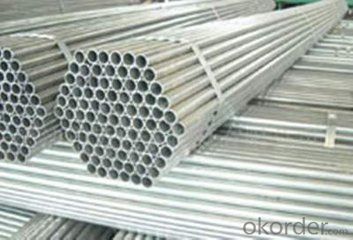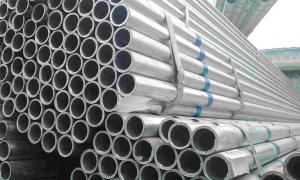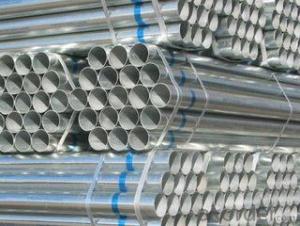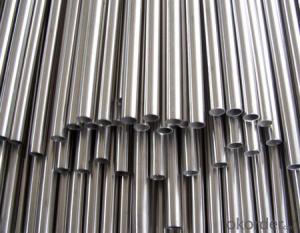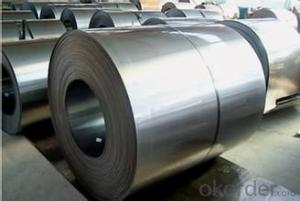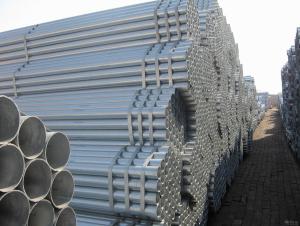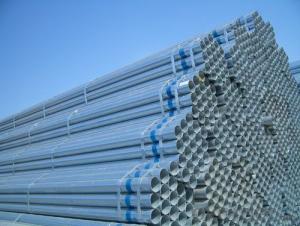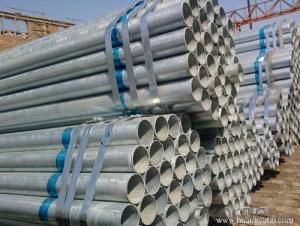Stainless Steel Tube waiting for you100g/200g Hot DippenGalvanization
- Loading Port:
- Tianjin
- Payment Terms:
- TT or LC
- Min Order Qty:
- 30 m.t.
- Supply Capability:
- 10000 m.t./month
OKorder Service Pledge
OKorder Financial Service
You Might Also Like
1、Structure of Stainless Steel Tube waiting for you100g/200g Hot DippenGalvanization
Seamless pipe is formed by drawing a solid billet over a piercing rod to create the hollow shell. As the manufacturing process does not include any welding, seamless pipes are perceived to be stronger and more reliable. Historically seamless pipe was regarded as withstanding pressure better than other types, and was often more easily available than welded pipe.
2、Main Features of Stainless Steel Tube waiting for you100g/200g Hot DippenGalvanization
• High manufacturing accuracy
• High strength
• Small inertia resistance
• Strong heat dissipation ability
• Good visual effect
• Reasonable price
3、 Stainless Steel Tube waiting for you100g/200g Hot DippenGalvanizationSpecification:
Standard | GB, DIN, ASTM ASTM A106-2006, ASTM A53-2007 |
Grade | 10#-45#, 16Mn 10#, 20#, 45#, 16Mn |
Thickness | 8 - 33 mm |
Section Shape | Round |
Outer Diameter | 133 - 219 mm |
Place of Origin | Shandong, China (Mainland) |
Secondary Or Not | Non-secondary |
Application | Hydraulic Pipe |
Technique | Cold Drawn |
Certification | API |
Surface Treatment | factory state or painted black |
Special Pipe | API Pipe |
Alloy Or Not | Non-alloy |
Length | 5-12M |
Outer Diameter | 21.3-610mm |
Grade | 20#, 45#, Q345, API J55, API K55, API L80, API N80, API P110, A53B |
Standard | ASME, ASTM |
1) Material:20#(ASTM A 106/A53 GRB.API5LGRB,GB),45#,16Mn,10#.
2) Specification range:OD:21.3-610mm,WT:6-70mm,length:6-12m or according to the requirement of clients.
3) Excutive standards:GB,ASME API5L.ASTM A 106/A53,Despite of the above standards,we can also supply seamless steel pipe with standard of DIN,JIS,and so on,and also develop new products according to the requirements of our clients!
4) Surface:black lacquered,varnish coating or galvanized.
5) Ends:Beveled or square cut,plastic capped,painted.
6) Packing:bundles wrapped with strong steel strip,seaworthy packing.
4、Packaging & Delivery
Packaging Details: | seaworthy package,bundles wrapped with strong steel strip |
Delivery Detail: | 15-30days after received 30%TT |
5、FAQ of Stainless Steel Tube waiting for you100g/200g Hot DippenGalvanization
①How is the quality of your products?
Our products are manufactured strictly according to national and internaional standard, and we take a test
on every pipe before delivered out. If you want see our quality certifications and all kinds of testing report, please just ask us for it.
Guaranteed: If products’ quality don’t accord to discription as we give or the promise before you place order, we promise 100% refund.
②How about price?
Yes, we are factory and be able to give you lowest price below market one, and we have a policy that “ for saving time and absolutely honest business attitude, we quote as lowest as possible for any customer, and discount can be given according to quantity”,if you like bargain and factory price is not low enough as you think, just don’t waste your time.Please trust the quotation we would give you, it is professional one.
③Why should you chose us?
Chose happens because of quality, then price, We can give you both.Additionally, we can also offer professional products inquiry, products knowledge train(for agents), smooth goods delivery, exellent customer solution proposals.Our service formula: good quality+good price+good service=customer’s trust
SGS test is available, customer inspection before shipping is welcome, third party inspection is no problem.
6、 Stainless Steel Tube waiting for you100g/200g Hot DippenGalvanization Images:
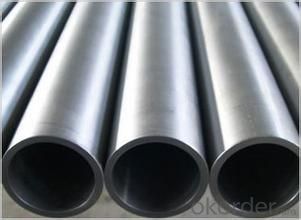
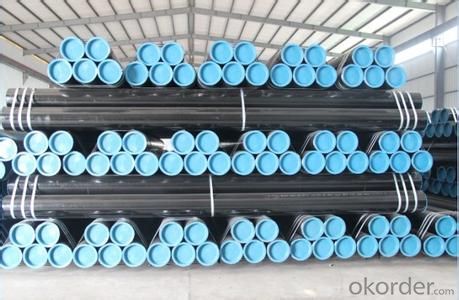
- Q: What are the safety precautions to follow while working with steel pipes?
- When working with steel pipes, it is important to follow certain safety precautions to ensure a safe working environment. Here are some key safety measures to consider: 1. Personal Protective Equipment (PPE): Always wear appropriate PPE, including safety goggles, gloves, steel-toed boots, and a hard hat. This will protect you from potential hazards such as falling objects, sharp edges, or flying particles. 2. Use proper lifting techniques: Steel pipes can be heavy and awkward to handle. Use proper lifting techniques, such as bending your knees and using your legs to lift, to avoid straining your back or causing musculoskeletal injuries. 3. Secure the work area: Clear the work area of any clutter or obstacles that could pose a tripping hazard. Ensure that the pipes are properly stored and secured to prevent them from rolling or falling. 4. Be cautious of sharp edges: Steel pipes often have sharp edges, which can cause cuts or punctures. Handle them with care and consider using protective covers or gloves to avoid injuries. 5. Use appropriate tools: Utilize the correct tools and equipment for cutting, welding, or manipulating steel pipes. Follow manufacturer instructions and guidelines to ensure safe usage. 6. Avoid working in confined spaces: Working in confined spaces poses serious risks. If it is necessary to work in such an area, ensure proper ventilation and follow confined space entry protocols to prevent asphyxiation or other hazards. 7. Follow proper welding procedures: If welding is involved, follow proper welding procedures and ensure proper ventilation in the workspace. Use fire-resistant blankets or screens to protect nearby combustible materials. 8. Be aware of hot surfaces: Steel pipes can become hot during welding or other processes. Use appropriate insulation or heat-resistant gloves to protect yourself from burns or heat-related injuries. 9. Establish communication: Establish clear communication channels with colleagues when working with steel pipes, especially when lifting or moving heavy objects. Use hand signals or verbal communication to ensure everyone is on the same page and to prevent accidents. 10. Regularly inspect tools and equipment: Before starting any task, inspect tools, equipment, and scaffolding for any damage or defects. Report and replace any faulty equipment to prevent accidents. Remember, safety is paramount when working with steel pipes. By following these precautions and using common sense, you can ensure a safe working environment for yourself and your colleagues.
- Q: What materials are used in scaffolding pipes?
- Fastener warranty information should be complete, enter the site should be carried out after re sampling technology, performance shall be in accordance with provisions of the "GB15831" steel pipe scaffold fastener, before use should be individually selected, cracks, deformation, bolt slide wire is strictly prohibited.
- Q: What is the creep resistance of steel pipes?
- The creep resistance of steel pipes refers to their ability to withstand deformation or strain under long-term exposure to high temperatures and constant stress. Steel pipes exhibit good creep resistance due to their high melting point and structural integrity, making them suitable for applications that involve elevated temperatures and prolonged use.
- Q: Can steel pipes be used for conveying natural gas?
- Certainly, natural gas can indeed be transported through steel pipes. In reality, steel pipes are frequently employed for this task owing to their robustness, long-lasting nature, and capacity to endure elevated pressures. Moreover, steel pipes exhibit exceptional resistance to corrosion, a vital feature when conveying natural gas containing impurities such as water and sulfur compounds. Furthermore, connecting various parts of the pipeline becomes effortless with steel pipes, thanks to their ease of welding. All in all, when it comes to conveying natural gas, steel pipes emerge as a trustworthy and secure option.
- Q: Can steel pipes be used for wastewater treatment plants?
- Yes, steel pipes can be used for wastewater treatment plants. Steel pipes are commonly used in wastewater treatment plants due to their durability, strength, and resistance to corrosion. They are suitable for conveying and transporting various types of wastewater and can withstand the harsh and corrosive environment found in these facilities. Additionally, steel pipes can be easily welded and joined, allowing for efficient installation and maintenance processes.
- Q: Is the diameter of the steel tube indicated by the outer diameter by the wall thickness or by the inside diameter by the wall thickness?
- The specification for steel tubes is the outer diameter multiplied by the wall thickness.Generally speaking, the diameter of the pipe can be divided into outer diameter (De), inner diameter (D) and nominal diameter (DN).
- Q: How are steel pipes used in the manufacturing of furniture?
- Steel pipes are commonly used in the manufacturing of furniture to provide structural support and stability. They are often used as the framework for chairs, tables, and other pieces of furniture. Steel pipes are strong, durable, and can be easily manipulated and welded to create various designs and shapes. Additionally, steel pipes can be finished with different coatings or paints to enhance their appearance and protect against corrosion.
- Q: What is the difference between steel pipe and concrete pipe?
- Steel pipe and concrete pipe are commonly used for various applications, but they have significant differences in material composition and properties. To begin with, the primary distinction lies in the materials utilized to manufacture these pipes. Steel pipes consist of steel, an alloy of iron and carbon. Conversely, concrete pipes are composed of a mixture of cement, aggregate (such as sand or gravel), and water. Additionally, steel pipes are renowned for their strength and durability. They can withstand high pressure, making them suitable for transporting fluids or gases under high pressure. Steel pipes also possess high resistance to corrosion, which is advantageous in environments exposed to moisture or chemicals. In contrast, concrete pipes are not as sturdy as steel pipes and are more prone to cracking or damage under high pressure. Nevertheless, they can still handle moderate pressure loads and are often employed in drainage systems or sewage applications. Another noteworthy difference is the installation process. Steel pipes are typically joined together through welding techniques like butt welding or socket welding, creating a seamless and robust connection between the pipes. Conversely, concrete pipes are often installed using rubber or gasketed joints, which are simpler to assemble and disassemble. Cost is another factor where steel and concrete pipes diverge. Steel pipes tend to be more expensive due to the higher cost of steel as a raw material and the additional labor required for welding and fabrication. On the other hand, concrete pipes are generally more cost-effective as the materials used in their production are more readily available and the installation process is simpler. In summary, the main disparities between steel pipes and concrete pipes revolve around their material composition, strength, resistance to corrosion, installation process, and cost. Steel pipes offer superior strength and durability, making them suitable for high-pressure applications and environments prone to corrosion. Concrete pipes, while not as robust, are cost-effective and commonly used in drainage systems or sewage applications.
- Q: Are steel pipes suitable for underground irrigation systems?
- Underground irrigation systems can indeed benefit from the use of steel pipes. Renowned for their durability and strength, steel pipes exhibit resistance to corrosion and can withstand significant pressure. Furthermore, they are less prone to cracking or breaking when subjected to the weight and pressure of the ground. Moreover, steel pipes boast an extended lifespan, alleviating the need for frequent replacements. Nevertheless, it is crucial to consider the composition of the water being conveyed, as certain minerals or chemicals may induce corrosion over time. In such instances, it might be necessary to employ corrosion-resistant coatings or liners. All in all, steel pipes represent a dependable choice for underground irrigation systems, particularly in regions characterized by elevated water pressure or when durability takes precedence.
Send your message to us
Stainless Steel Tube waiting for you100g/200g Hot DippenGalvanization
- Loading Port:
- Tianjin
- Payment Terms:
- TT or LC
- Min Order Qty:
- 30 m.t.
- Supply Capability:
- 10000 m.t./month
OKorder Service Pledge
OKorder Financial Service
Similar products
Hot products
Hot Searches
Related keywords
